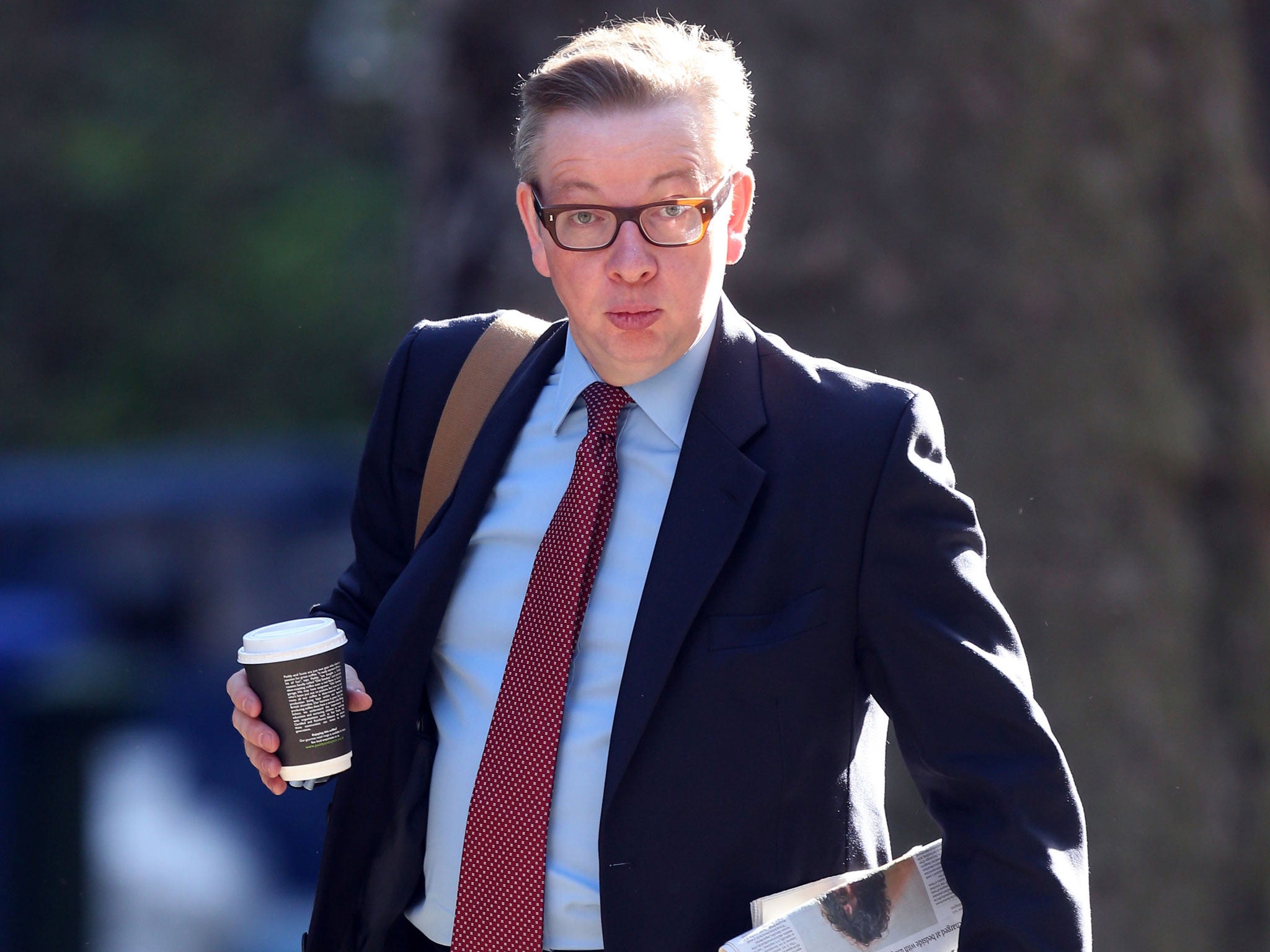Conservative ministers Michael Gove and Philip Hammond break ranks to say they would vote for Britain to exit EU
Speaking on the BBC's Andrew Marr show he also revealed he would abstain from the Commons vote on an EU referendum next week

Michael Gove edged the Tory party closer to calling for an end to Britain’s membership of the EU by saying that if relations do not change, he would vote for an immediate exit.
His position was markedly different from that of David Cameron, whose aim is to bring about sufficient change in the EU to persuade the public to vote in a referendum to stay in.
Asked by the BBC’s James Landale whether he would vote to leave the EU if a referendum was held now, Mr Gove replied: “Yes, I’m not happy with our position in the European Union.”
But after serving that morsel of red meat to the Tory right wing, the Education Secretary immediately stepped back into line behind the Prime Minister’s strategy. He added: “My preference is for a change in Britain’s relationship with the European Union. My ideal is exactly what the majority of the British public’s ideal is, which is to recognise the current situation is no good, to say that life outside would be perfectly tolerable, we could contemplate it, there would be certain advantages.”
Later, the Defence Secretary Philip Hammond echoed his words, by telling the BBC’s John Pienaar that he too would vote to leave the EU under current circumstances – though he predicted that David Cameron would be able to secure more acceptable conditions.
The Speaker, John Bercow, has yet to rule on whether the Commons will vote on a motion put forward by backbench MPs expressing “regret” that there was no mention of an EU referendum in last week’s Queen’s Speech. David Cameron, who will be absent on a visit to the USA, has told ministers to abstain if the vote is held.
Mr Gove also dismissed suggestions that the Conservatives are “at war”, because large numbers of backbench MPs intend to back the rebel amendment.
“You can’t have a civil war when everyone’s on the same side,” he said. “Fundamentally, the majority, the overwhelming majority of Conservative MPs, would like to have a different relationship between Britain and Europe, and I emphatically want a different relationship.
“Some of my colleagues are very exuberant and they want to let off steam. That’s fair enough. My own view is let the Prime Minister lay out our negotiation platform, make sure he has a majority – which I’m convinced he’ll secure at the next election – and let’s have the referendum then.”
There is no known precedent in modern politics for the spectacle of members of a governing party voting for a motion criticising their own Queen’s Speech, and of ministers not rallying to its defence. But Downing Street defended Mr Cameron’s position, saying: “We don’t want to be in a position of instructing the party to vote against a motion we actually support. This is not the same as ministers voting down the Queen’s Speech.”
Some Labour politicians agree that the public should have a vote on whether to stay in the EU, although unlike the Tory right, they hope it will settle the issue in favour of continued membership. A new Labour for a Referendum group is to be launched next month, with the backing of the former Europe minister, Keith Vaz and others, including the comic actor Richard Wilson and The Independent columnist Owen Jones. Mr Wilson said: “As a pro-European I want to put the issue to bed once and for all.”
But Labour’s shadow chancellor, Ed Balls told Sky’s Murnaghan programme that the country has more urgent priorities. He said: “We are trying to get our economy moving, we need to say we’re open for business and get people to invest here – the idea now that we decide the priority is to legislate for a referendum on an uncertain prospect, on an uncertain timetable, nobody knows what it is actually about – I think the rest of the world would say ‘my gosh, they’ve lost their marbles’. Then you sort of think the Conservative Party feels as though it’s lost its marbles at the moment.”
In another unusual twist, Downing Street had said that the instruction to abstain applies only to Tory ministers. The parliamentary private secretaries to at least two Cabinet ministers – Mr Gove and the Northern Ireland Secretary Owen Paterson - are expected to vote for the rebel amendment. Although parliamentary aides are unpaid, they are not normally bound by the same rules as ministers, and would be expected to resign if they voted with the rebels, but this time they have been given the freedom to vote as they choose.
Subscribe to Independent Premium to bookmark this article
Want to bookmark your favourite articles and stories to read or reference later? Start your Independent Premium subscription today.

Join our commenting forum
Join thought-provoking conversations, follow other Independent readers and see their replies